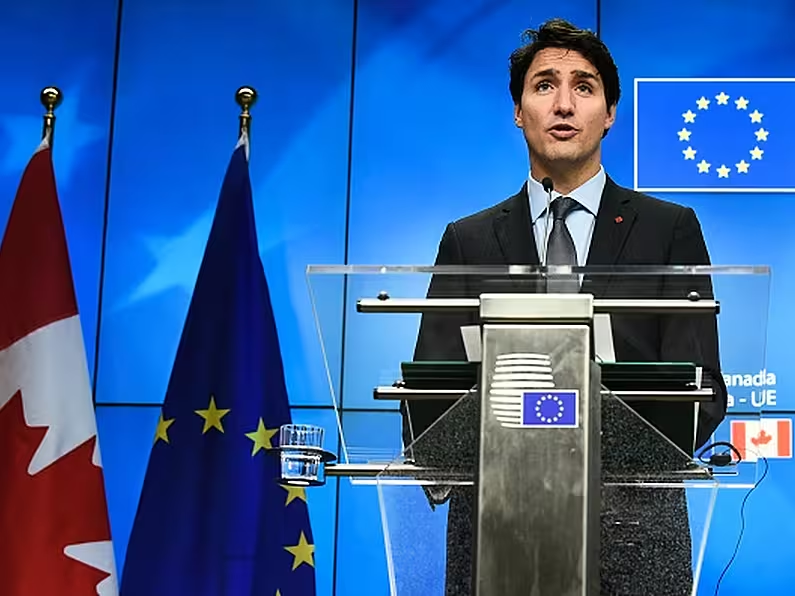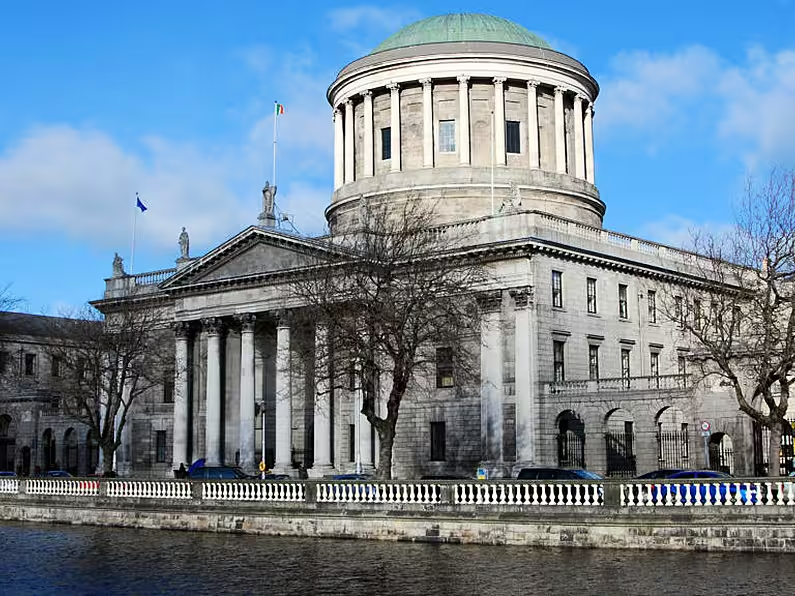An EU-Canada trade deal under which ‘investor courts’ can make damages awards against Ireland to Canadian investors here does not mean a “wholesale handing over of sovereignty”, lawyers for the government have told the High Court.
Michael Cush SC said the entire case by Green Party TD Patrick Costello over aspects of CETA (Comprehensive Economic Trade Agreement) can be resolved by “a proper understanding” of the distinction between the State’s international obligations on the one hand and the effect of CETA on Irish domestic law on the other.
While it is correct to say CETA creates rights and obligations at the level of international law, it is not part of the domestic law of the state, he argued.
Mr Costello placed much emphasis on the possibility of the recognition and enforcement by a tribunal established under CETA of damages awarded to Canadian investors against Ireland, he said. While the State accepted CETA provides for that, that does not make CETA part of domestic law as no Canadian investor can come into an Irish court and seek an order under CETA, counsel said.
International law
A disappointed investor can instead go to a CETA tribunal and complain Ireland is not meeting CETA obligations as matter of international law.
If correct, that investor could get an award from the tribunal against Ireland, he outlined. If the investor is not paid, the investor can come to an Irish court and seek recognition and enforcement, not under CETA, but rather under the Arbitration Act, counsel said.
Catherine Donnelly SC, also for the State, said the tribunal is not engaged in the administration of justice here as defined under the Constitution. Irish courts decide justiciable controversies in accordance with law, that means national law, and international law is not justiciable before the national courts unless it has been given effect by the Oireachtas, she submitted.
CETA gives Canadian investors no rights other than those they already have under Irish law, including property rights, she submitted. There is “no wholesale handing over of sovereignty”.
There can be an administration of justice at international level but that is not the administration of justice within the meaning of Article 34 of the Constitution, Ms Donnelly argued. An investor who brings a complaint against Ireland before the tribunal will have to establish a violation of CETA.
Counsel were making submissions in the continuing hearing before Ms Justice Nuala Butler of the proceedings by Mr Costello against the Government of Ireland, Ireland and the Attorney General.
The case raises significant constitutional issues concerning the power of the Executive to ratify CETA, as well as issues of EU law raised by the defence.
Constitution
The Dublin South Central TD claims the protections for Canadian investors usurp and supplant the law making function of the legislature and the judicial competence of the Irish courts as set out in Articles 15 and 34 of the Constitution.
His concerns include there is no limit on the value of compensation which may be awarded under the investor tribunal system and neither it, nor an appellate tribunal, will be composed of judges appointed under the Irish Constitution. There is no mechanism under CETA reserved for the Irish courts via appeal or judicial review to determine whether the investor tribunal/appellate tribunal established under CETA has given due weight to the rights of Ireland, he says.
He believes the impact of the investor protection measures are such that CETA must be put before the Irish people in a referendum.
Most of CETA is a trade treaty designed to reduce tariffs and increase trade between the EU and Canada. The trade element has been provisionally ratified by the EU and Canada, and has been applied since September 2017.
Chapter 8 of CETA, the focus of Mr Costello’s case, provides for an investor protection and investor tribunal system. If ratified, a code of rules will come into force under which Ireland will be bound by restrictions relating to establishment of investments by Canadian investors here.
The hearing continues on Friday.












